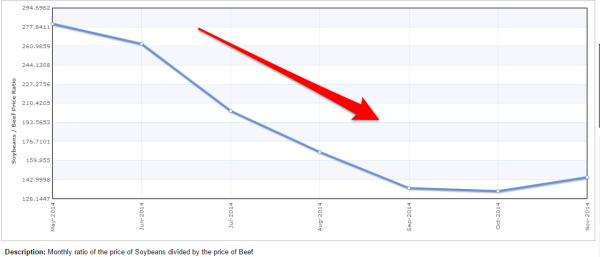Soy - The dilemma
Published by Javier Gines Galera,
"Will soy mess with your hormones? Science tries to reveal the answer and it might surprise you"

What is soy?
Soy is a leguminous vegetable of the pea family cultivated back from the 11th century BC, in East Asia. Its health properties were acclaimed from such a remote time and are a big part of the Asiatic traditions. Introduced in Europe from the 17' century by Chinese traders, soy was originally used fermented into products like Tofu, Misoh and Tempeh. Nevertheless soy is nowadays full of controversy.
Why are we so interested in soy?
With a population expected to reach 9 billion in 2050, that's 2 billion more than now (ONU), soy came to rescue all of us and our appetite for protein (Did I hear protein shake? WHERE!??).
But one question remains unclear, will it have unwanted consequences in our hormones and other parameters (including gynecomastia, or commonly speaking man boobs? 3<).
Or its the answer for the future food supply?. Continue reading, maybe I can help you to sleep for once tonight.
Along the last couple of years, the popularity of soy drinks and it's presence as ingredient in daily foods (ice cream,jams, anyone?) has began a warm debate in the western world.
The fact that soy is one of the cheapest crops avalaible and prices are going down, makes it a very appealing ingredient for the big manufacters. On the other hand, the skyrocketing prices of animal protein and subproducts has taken many people, and not only vegetarians to consider this new old chinese cosmopolitant plant as the new ground meat. *see graphic. Just as an example of one of the derivates of soy, on the season 2013/2014 485.6 million metric tones of soybean oil were produced.

Should we worry about this soy revolution?
It's clear that soy will be present along the growth of worldwide population on the upcoming years.
In 2006, the American Heart Association reviewed a decade's long soy study on the heart and cancer improving claims of soy. The health claims were based on the content of isoflavones, a type of phyto-estrogens. This isoflavones in soybeans are similar to naturally present estrogen hormones in women (and in men in lower concentration) and were traditionally associated with positive effects.
What is the problem of ingesting something similar to what I have naturally in my body?
The problem with the similarity of isoflavones to natural hormones is that, as hormones, they compete for the same receptors.
Imagine a class with 10 students (called "the estrogens"), each one of them has a toy to which they "bind" and play for hours (receptor)- They are happy. Suddenly 5 exchange students come to class (isoflavones), and they also want to play, however there are the same 10 toys. This children are selfish, and do not like to share, therefore 5 children are left without a toy to play and will start crying (problems). This is what happens when your hormones don't have anything to join to, because isoflavones have already joined to a toy/receptor, they will accumulate and cause problems in your body.
This does not mean isoflavones/exchange students are intrinsically bad, you just have to control the quantity of them going around to maintain the order in your body/class.
The conclusion of the previous study conflicted previous ones, where it was said that soy protected from cancer, as this study in chinese population.
As conseguence of this and other findings, in 2011 EFSA (Euroean food safety association) retrieved back the health claims in soy (Have you seen recently any health claims now in soy drinks?).
In the worst of the cases of soy not having any functional properties...
Would it be a problem to use it as substitute of other not that much sustainable sources of protein and other components for the future humanity growth?
Soy in detail
Soy contains around 30% of carbohydrates as well as, fiber, vitamins, minerals, and have up to 40% of protein with a PDAA value (used to determine "how good is a protein") of almost 1.0 (the maximum value).
Soy protein is therefore comparable in quality to milk, beef and eggs. Who would have said that before!
Moreover soy protein is complete in terms of aminoacid composition, this means it a totally viable protein for the body. That's good news!
However, it has also been found to contain naturally ocurring toxines as phytic acid, which reduces the absorption of minerals as zinc, causing mineral deficences, as well as trypsin inhbitors (reducing the hability for the body to ingest proteins) between others.
This components are not just present in soybeans, but also in wheat and other legumes (surprise surprise!).
The high temperatures and industrial techniques used to process soy in the final products that you buy in the supermarket are believed to reduce the content of this components, but nothing is clear yet. Moderation is key.
The problems
1- "What about testosterone? I heard that soy is not good for men"
You may be worried about the relation of soy with a decreased level of testosterone, the hormone that makes you ....feel like a man.
In the following 3 month study the effect of different kinds of protein,including soy and normal whey protein provenient from milk was studied on their influence on muscle growth during strengh training.
The findings where that, there was no significant difference between the different groups in terms of testosterone , fat or body mass gains. They all increseaded muscle mass. This is not the only study showing good results for the industry of soy protein (study)
So can I get a hot summer "soy" body? Apparently yes, you can! Just don't forget to get enough sleep, a variated diet and a good fitness program!
2- "My mother was recommended to drink soy because it has phytoestrogens"
Soy has three different substances that act as estrogen-like-hormones (being the most relevant genistein and daidzein).
Estrogen is a component in the body used for the develop of the female secondary characteristics as breast, endometrium, takes part of the regulation of the menstrual cycle, among others. Trust me, you don't want to mess with it. And less if you are a man (I'm sorry for telling you, but you have also estrogen).
In some conditions as menopause where the estrogen levels suffer a strong decrease, this phyto- estrogens were associated to reduce symptoms as hot flushes in the old days, but this has been nowadays found to not be true.
3- Will the phytoestrogens affect me in some way?
The problem in this case comes again with quantity consumed.
In this study in rats, phytoestrogens where related to a lower count of spermatozoids in the high dose groups of 20 mg/kg. Remember that soy is NOT 100% phytostrogens), but no differences where observed in the lower dose phytoestrogens against control.
You may think know soy is the best think you can take in your 20's ...But my apologies for getting you on track again.
If you try to consume 20 mg/kg of phytoestrogens, you would have to eat only soy. For example a cup of soy milk, one of the most common soy products, contain just 30 mg of phytoestrogens, that means that a normal men of 70 kg, would require 46 cups a day of soy milk to get effects in sperm count if we had same metabolism as rats.
Come on brave man, try that!
This article revealed also that up to 16 mg/kg of isoflavones did not have influence in behavioral or physical changes as it was eliminated in the urine rapidly.
In Asia for example they consume around 6-11 g of soy protein and 25-50 mg of isoflavones, and they are believed by us the western world to eat soy all day long!. This is not true as you can see.
Some other studies found soy to have an impact on hormone levels even at low quantities, much still here to research!
So after reaching this point you may be asking yourself, I though science had the answer! It does, Science doesn't have one answer, it has thousands of them.
Conclusion
Soy is not the super healthy food that will resolve all the diseases, but it's not either the bad crop that will destroy the human specie by taking off the reproductive men, and increasing the estrogens levels until we all are soy-zombies.
Soy is one sustainable alternative for the growth of future populations. Do not get afraid for the unknown but get excited for the new possibilities.
Extra tip: Will I get bigger breast (also for you men) with soy?
In case you just jumped to this part of the article, I will make you a favor and tell you. Apparently you won't unless you drink 43 cups of soy drink a day and .... you are a rat. Research on this boobie content is not accurate yet, so take it with caution and don't make yourself a one food living from soy.
If you found this post helpful, please share it on social media. If you want to make my day, leave a comment.
If you have questions, just leave a comment and I'll try to clarify. Note that I'm not associated with the soy industry
If you have questions, just leave a comment and I'll try to clarify. Note that I'm not associated with the soy industry
By Javier Gines Galera
